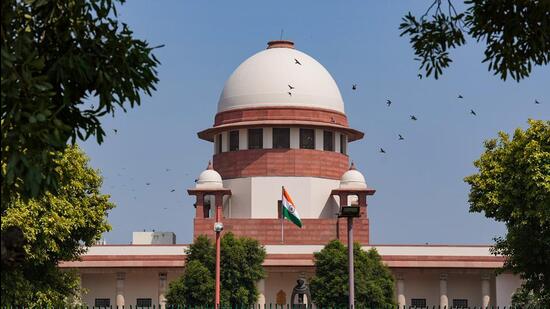
The Indian Constitution equates education with charity and it can never be treated as business, commerce or trade, the Supreme Court stressed on Wednesday while ruling that a charitable institution will be entitled to tax relief only if it does not engage in any profit-making activity.

Section 10(23C) of the 1961 Income Tax Act provides for tax exemption to charitable trusts, societies or institutions existing “solely” for educational purposes and not for the purposes of profit.
The word “solely” was, however, interpreted by two previous judgments of the top court in 2008 and 2015 to mean that the test for determination was whether the principal or main activity was education or not, rather than whether some profits were incidentally earned.
On Wednesday, a three-judge bench headed by Chief Justice of India Uday Umesh Lalit overruled the previous judgments, declaring that the word “solely” must be given a literal interpretation since the intent of the legislature is clear that tax exemptions should be granted to only those institutions which impart formal scholastic learning, as defined by the IT Act under the head of “charitable” purposes. The court ruling applies to all non-governmental institutions that are set up for educational purposes. Revenue received by any university or educational institution that exists solely for educational purposes is exempt from tax if it is authorised by the prescribed authority.
After what the SC held on Wednesday, all such institutions must satisfy the IT authorities that they are involved exclusively in imparting education and no ancillary or supplementary business activity has been undertaken for profit.
“In the opinion of this court, a trust, university or other institution imparting education, as the case may be, should necessarily have all its objects aimed at imparting or facilitating education. Having regard to the plain and unambiguous terms of the statute and the substantive provisions which deal with exemption, there cannot be any other interpretation,” held the bench, also comprising justices S Ravindra Bhat and PS Narasimha.
It added that the trust or educational institution which seeks exemption under the IT Act should solely be concerned with education, or education-related activities.
“If, incidentally, while carrying on those objectives, the trust earns profits, it has to maintain separate books of account,” said the court, adding an exemption or approval cannot be denied only on the ground that there are certain incidental incomes accruing to an institution while imparting education.
The ruling came on a batch of appeals arising from a judgment of the Andhra Pradesh high court, which held that tax exemption will require an enquiry into activities of an institution.
The court, while interpreting the law, relied heavily on the 11-judge bench judgment in the TMA Pai Foundation case of 2002.
“Our Constitution reflects a value which equates education with charity. That it is to be treated as neither business, trade, nor commerce, has been declared by one of the most authoritative pronouncements of this court in TMA Pai Foundation. The interpretation of education being the ‘sole’ object of every trust or organization which seeks to propagate it, through this decision, accords with the constitutional understanding and, what is more, maintains its pristine and unsullied nature,” it stressed.
“In a knowledge based, information driven society, true wealth is education – and access to it. Every social order accommodates, and even cherishes, charitable endeavour, since it is impelled by the desire to give back, what one has taken or benefitted from society,” added the bench.
The apex court further called education the key that unlocks the golden door to freedom. “Education ennobles the mind and refines the sensibilities of every human being. It aims to train individuals to make the right choices. Its primary purpose is to liberate human beings from the thrall of habits and preconceived attitudes. It should be used to promote humanity and universal brotherhood. By removing the darkness of ignorance, education helps us discern between right and wrong. There is scarcely any generation that has not extolled the virtues of education, and sought to increase knowledge,” it said.